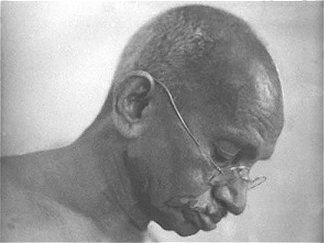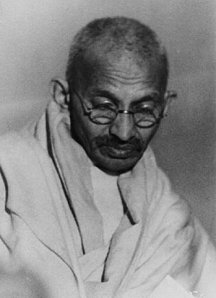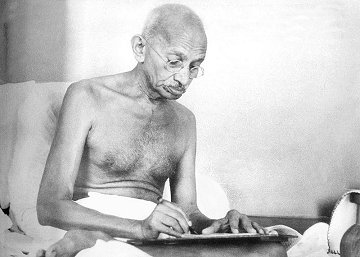Heart And Soul: Mahatma Gandhi
Mahatma Gandhi
His non-violence won over armies, prooving that books and pencils can be stronger than guns

Mohandas Gandhi was born on 2 October 1869, at Porbandar in north-west India. In 1883 he married Kastur Ba and five years later left for London to study Law until 1891. He returned to India and practiced in the High Court as Barrister, but with little success.


In 1893, representing an Indian firm he travelled to South Africa and experienced racism. A year later he founded the Natal Indian Congress to fight colour prejudice. In 1899, during the Boer War, he joined the Ambulance Corps, forming an Indian group which stood on the British side. One of his goals was to improve the status of Indians in the British empire. He kept on helping Indians in South Africa, read sacred books of different religions and started corresponding with Shrimad Rajchandra and Leo Tolstoy. Under their influence, he launched the Passive Resistance Movement in 1906. He was jailed several times, attacked by mobs on several occasions, but he refused to seek revenge.
In 1910, Gandhi established an idealistic community named Tolstoy Farm. In 1915, he returned to India, started publishing reviews, and succeeded several times in improving the condition of mainly poor Indian farmers in different regions. He joined the Indian National Congress and lead the independence movement as of 1920. To attend this goal he sought Hindu-Muslim unity. But in 1922 he was jailed for 2 years and the temporary unity faded away.

In 1930, he established the Civil Disobedience programme. He organized the Salt March, followed by thoudands, so people could get salt without having to pay the Salt tax. He was jailed once again and the non-violent protestors brutally beaten by police forces. But this event upset British hold on India, even though few things did change during the 1930s.


In 1942, Gandhi promoted a mass campaign of civil disobedience and wrote the "Quit India" resolution. He was again imprisoned, with other independence leaders. As violence emerged, he insisted that disobedience should remain non-violent. He was released in 1944 as his health was failing and the British feared the possible impacts, would Gandhi die in prison. The war over, England released political prisoners and was about to grant India independence, but dividing the country in two, on religious basis, to Gandhi's great distress. Following the partition, over a million people died in the rioting, and ten times as much were displaced. Gandhi toured troubled areas of Bengal, Bihar & Delhi, fasting and promoting peace, which helped stop the riots.
Gandhi's aim had also been to bring together these divided religions of India. In his talks, he would quote widely from different religions to
increase mutual understanding. In 1948 he said: "I do not wish to live if peace is not established in India and Pakistan".
He was shot by a Hindu nationalist and died 30 January 1948, but his action and message remain and have initiated many civil rights and non-violent
movements.

More info:
